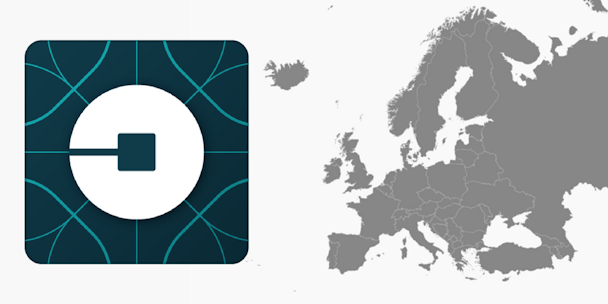Taxi, not tech: How the ECJ's ruling threatens Uber's reputation and the gig economy
The European Court of Justice (ECJ) in Luxembourg has ruled that Uber is a transport company rather than a digital service. The decision, which cannot be appealed, means that the app will be subject to the transport legislation of member states rather than an EU wide e-commerce directive.

ECJ's ruling on Uber as a transport company (not an e-commerce tool) brought potential repercussions for it, and rest of gig eco
The landmark decision could pull the carpet from under other gig economy apps who have arguably benefited from a lack of legal precedent around their status. On the other hand, Uber immediately commented that it already strives to adhere to local transportation law, despite this "millions of Europeans are still prevented from using apps like ours".
In the UK in particular, three cities have banned the app this year, London, Sheffield and York. It's worth noting that the app continues to operate in London as it appeals a TfL ban. Meanwhile in Sheffield the ban was promptly usurped.
There may be a cataclysm for the gig economy ahead.
What changes?
John Haggis, a lawyer at Keystone Law, said that the ECJ ruling may empower member states to manoeuvre around the taxi service now. "The ruling clarifies that member states can create new regulations in the transport area specifically aimed at this new disruptive model. From a reputation viewpoint, this ruling won’t have a major impact, Uber have already tried to comply with the rules, but they still have the battles ahead."
Haggis added: "It will be interesting how it fits in the UK around the driver employment tribunal, this ruling shuts down the argument that they are not a taxi business."
Indeed the global legal friction the disruptive company faces is far from its most significant issue with regards to how consumers view it. Julian Green, head of corporate practice at Kantar Millward Brown, analysed social media posts about the brand over the second half of 2017. Green noted that the brand has had a bumpy year. “It goes back to stories around corporate culture and their treatment of drivers and stories in the press around customer safety, most recently, the data breach resulted in the biggest fall.”
In this leak, revealed in November 2.7m UK user accounts were exposed, this included their names, email addresses and mobile phone numbers. Globally, 57m accounts were compromised.
Bad reputation
Kantar Millward Brown measures reputational damage across three fronts; customer services, comms and data protection. While United Airlines and Pepsi fell down on these first two criteria respectively, Uber saw its biggest hit of the year in the data protection criteria.
“Data security is the biggest gripe for consumers, this takes much longer to recover from. Consumers are becoming increasingly conscious of brands using (or misusing) their personalised data," said Green. “When people realise companies are squandering their data, that really knocks their belief in the brand.”
The week the news broke, sentiment levels fell from an already low 20 to minus 50 in the space of days. To contextualise this, Pepsi, quickly recovered to 85 on the trust scale after the Kendal Jenner gaffe.

In 2018, Uber will look to have a firmer grip on its brand, it has had the benefit of doubt for long enough by being a pioneer in the space. Green added: “It is very much the disruptive space, as more competition comes into the market, Uber will find it much more difficult to manage their reputation. At the moment, they are not really too bothered about it.”
One of the main talking points on social media is how the company treats its drivers, its European reclassification as a transport company may see it take more responsibility for its staff. “Treating drivers fairly is one of the most positive drivers in our data for Uber. People talk about the drivers being the face of the business, they want to know those employees are being taken care of," concluded Green.
The same rings true for any other players in the gig economy space, be it Airbnb, Deliveroo and more. With the ruling, the ECJ has called a spade a spade, Uber, in Europe at least is a transport company, not a information society business.
Haggis concluded: "This is the first time that someone in the gig economy has really been told you are not an information society business, you really are in the taxi business, we now look to Airbnb, the largest room listing business in the world, larger in fact than hotel chains, are they not now in the hotel business?"

